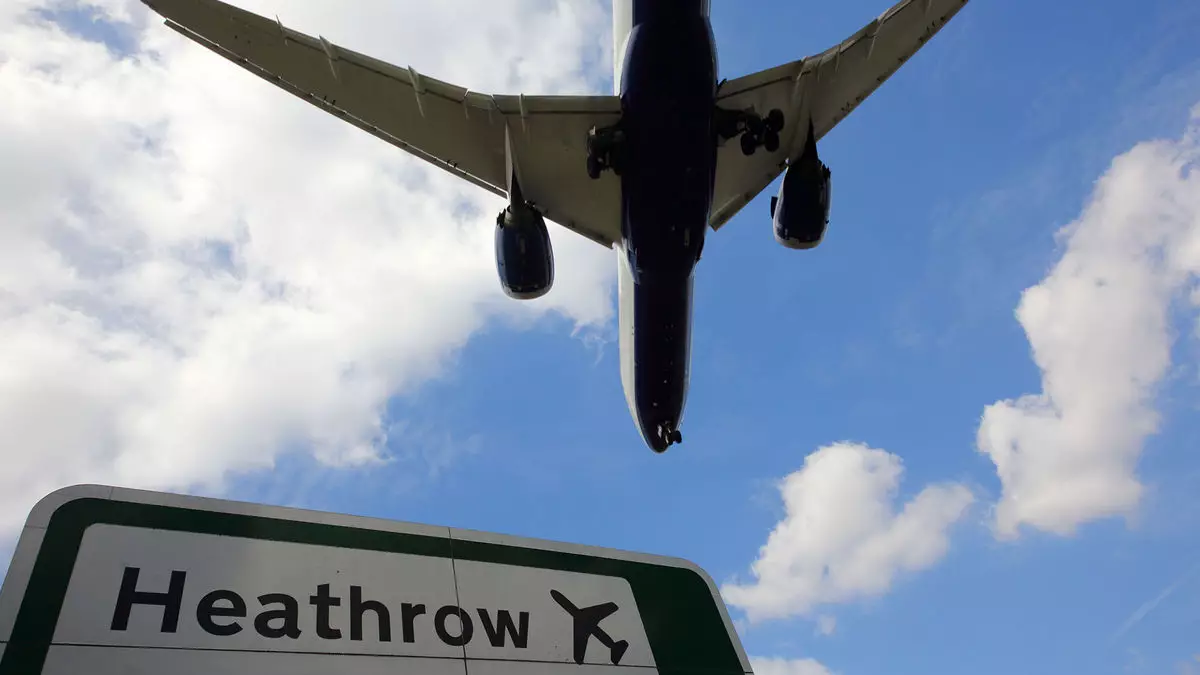In an age where time is of the essence and convenience reigns supreme, the aviation sector is adapting to meet the evolving needs of international travelers. A promising pilot program at London Heathrow Airport heralds a new era of reduced hassle for connecting flights. This initiative, which was launched on February 4, allows passengers flying from Dallas-Fort Worth on American Airlines or from Atlanta on Delta and Virgin Atlantic to seamlessly transition to their connecting flights without the burdensome processes of claiming baggage and undergoing security rescreening. In a world that demands efficiency, this program could serve as a template for future travel innovations.
Simplifying the Travel Experience
Traveling internationally often involves a series of time-consuming steps that can leave passengers feeling drained and frustrated. Normally, U.S. solo travelers landing at Heathrow would have to reclaim their checked baggage and undergo additional security measures before boarding their next flight. However, by bypassing these outdated protocols, the Heathrow pilot program is setting a new standard. As American Airlines Chief Security Officer Gary Tomasulo points out, travelers have been ecstatic about the efficiencies gained, saving an estimated 30 to 40 minutes on average during their transitions. This time-saving element not only enhances the travel experience but can also significantly reduce the overall stress associated with international connections.
The Mechanics of One-Stop Security
The success of the Heathrow pilot program lies in its innovative approach. Passengers arriving at Terminal 3 who are connecting to British Airways flights simply board a bus to Terminal 5, where their luggage is automatically transferred, akin to a domestic flight arrangement. This tight coordination between airlines and airport authorities ensures that travelers remain in the secure area throughout their transit, avoiding the inconvenience of interacting with customs and border protection at every step. These streamlined processes exemplify how technology and international collaboration can ease the burdens traditionally faced by international travelers.
Furthermore, this pilot program is the first to gain approval from the Transportation Security Administration (TSA) under the One-Stop Security initiative, a legislative effort initiated in late 2022. The timeline for future implementations is promising, with new protocols expected to roll out in the summer, allowing passengers traveling from Heathrow to North America to enjoy an even more convenient experience. The potential to expand these protocols includes the possibility of implementing them at U.S. airports, representing a significant step toward global standardization.
Challenges and Collaboration in Implementation
Despite the promise of enhanced travel experiences, launching the Heathrow pilot was not without its challenges. Achieving alignment on security protocols between the U.S. and the U.K. required extensive discussions and negotiations among officials and airport authorities. The complexity of international travel and the need for heightened security standards necessitated a carefully orchestrated effort. Therefore, the successful establishment of the One-Stop Security program is a testament to the power of diplomacy and international collaboration.
Moreover, the upcoming phases of this initiative will bring its own complexities for inbound travelers. While U.S. Customs and Border Protection agents will need to clear connecting passengers, the process should remain efficient with advanced screening methods already in place. This highlights a new era for international travel, where safety does not compromise convenience.
Benefits Beyond Convenience
The implications of the One-Stop Security initiative stretch beyond mere convenience for travelers. Advocates for this program, like Ryan Propis from the U.S. Travel Association, argue that it represents a groundbreaking leap in aviation security. By creating a standardized approach to security across international borders, the initiative not only enhances safety but also fosters closer ties between participating countries. It allows agencies like the TSA and Customs to reallocate their resources more effectively, prioritizing high-risk areas while ensuring a smoother flow of legitimate travelers.
The broader potential for One-Stop Security extends to other major global airports, including Paris, Amsterdam, and even gateways in Australia and New Zealand. This represents an exciting opportunity to redefine how we think about international travel and airline operations.
The Call for Progress
Despite the successful debut of the Heathrow pilot, industry experts have expressed concerns about the slow implementation of the One-Stop Security program. As key stakeholders in the aviation sector, there is a call for improved coordination between U.S. and international entities to accelerate the process. Further, there is an urgent need for Congress to extend the initiative beyond its preset expiration in 2028 to maximize its potential impact on global aviation.
American Airlines has shown a proactive approach, indicating a strong desire to expand this model into other major hubs in the U.S. The passion and determination of the airline to reshape the travel experience reflects a broader ambition in the aviation industry: to provide travelers with seamless, secure, and efficient journeys without compromising safety.


Leave a Reply